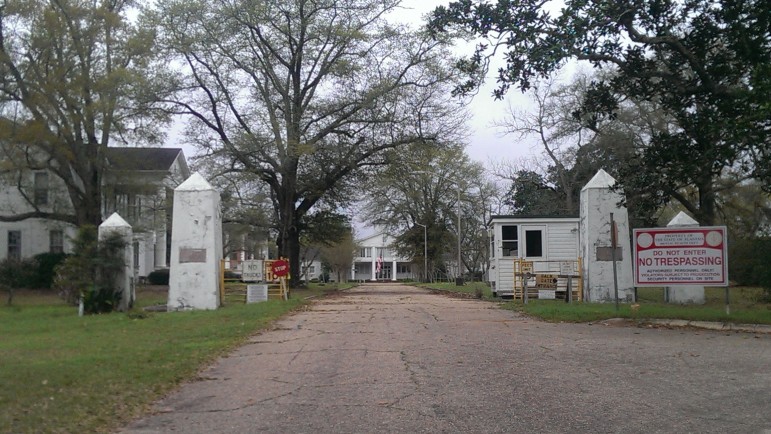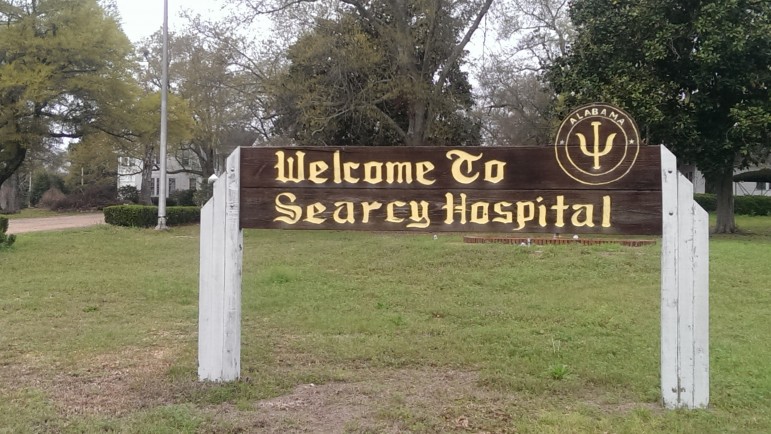Mt. Vernon Arsenal, Searcy Hospital Among Most Endangered Historic Places
The National Trust for Historic Preservation announced this week that Mt. Vernon Arsenal, which later became Searcy Hospital, is one of America’s 11 Most Endangered Historic Places for 2019.
The site is just outside of Mobile in the town of Mt. Vernon, Alabama. The arsenal was constructed in the 1830s and supplied military equipment to regimens in Alabama and West Florida. According to documents filed with the National Register of Historic Places, the Mt. Vernon Arsenal is one of just two surviving arsenals established during this time.
During the Civil War, Confederate soldiers seized the site and controlled it until the end of the war. The arsenal was then converted into barracks for the U.S. Army.
From 1887 through 1894, Mt. Vernon housed Native American prisoners of war, including the Apache leader Geronimo. These prisoners lived in constructed villages on the grounds of Mt. Vernon. Many of them were later moved to Fort Sill, Oklahoma.
In the early 1900’s, Alabama converted the buildings at Mt. Vernon into a state psychiatric hospital for black patients, which was later renamed Searcy Hospital. When it first opened, Searcy reportedly employed one doctor to treat more than 300 patients. The hospital was eventually integrated in 1969 and remained open until 2012.
Since Searcy Hospital closed, the site has remained vacant. Often referred to as the Mt. Vernon Arsenal/Searcy Complex, the area includes over 30 buildings, which are owned by the Alabama Department of Mental Health. Tiffany Tolbert, a senior field officer with the National Trust for Historic Preservation, says the historic location is at risk of falling apart.
“The structures on the site are deteriorating and it is in need of a preservation plan and revitalization,” Tolbert says.
The Mt. Vernon Historical Society, a local group in Mt. Vernon, has worked to preserve part of the site. Tolbert says adding the location to the national list of endangered historic places may help encourage state leaders to take further action.
Deadline looms as Anthropic rejects Pentagon demands it remove AI safeguards
The Defense Department has been feuding with Anthropic over military uses of its artificial intelligence tools. At stake are hundreds of millions of dollars in contracts and access to some of the most advanced AI on the planet.
Hillary Clinton calls House Oversight questioning ‘repetitive’ in 6 hour deposition
In more than seven hours behind closed doors, former Secretary of State Hillary Clinton answered questions from the House Oversight Committee as it investigates Jeffrey Epstein.
Chicagoans pay respects to Jesse Jackson as cross-country memorial services begin
Memorial services for the Rev. Jesse Jackson Sr. to honor his long civil rights legacy begin in Chicago. Events will also take place in Washington, D.C., and South Carolina, where he was born and began his activism.
In reversal, Warner Bros. jilts Netflix for Paramount
Warner Bros. says Paramount's sweetened bid to buy the whole company is "superior" to an $83 billion deal it struck with Netflix for just its streaming services, studios, and intellectual property.
Trump’s ballroom project can continue for now, court says
A US District Judge denied a preservation group's effort to put a pause on construction
NASA lost a lunar spacecraft one day after launch. A new report details what went wrong
Why did a $72 million mission to study water on the moon fail so soon after launch? A new NASA report has the answer.








